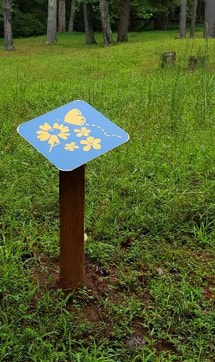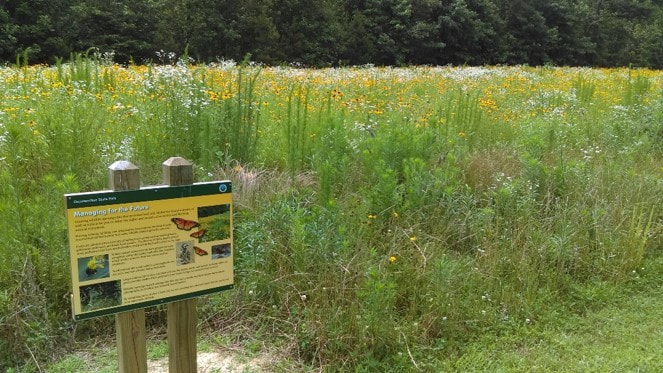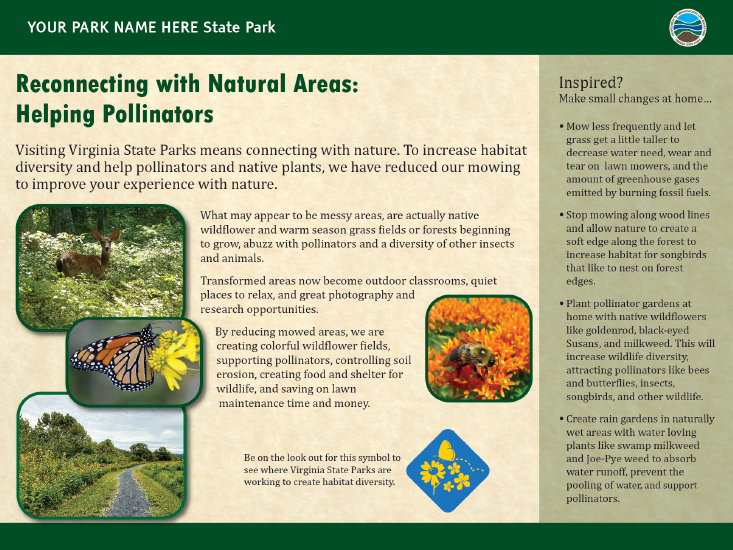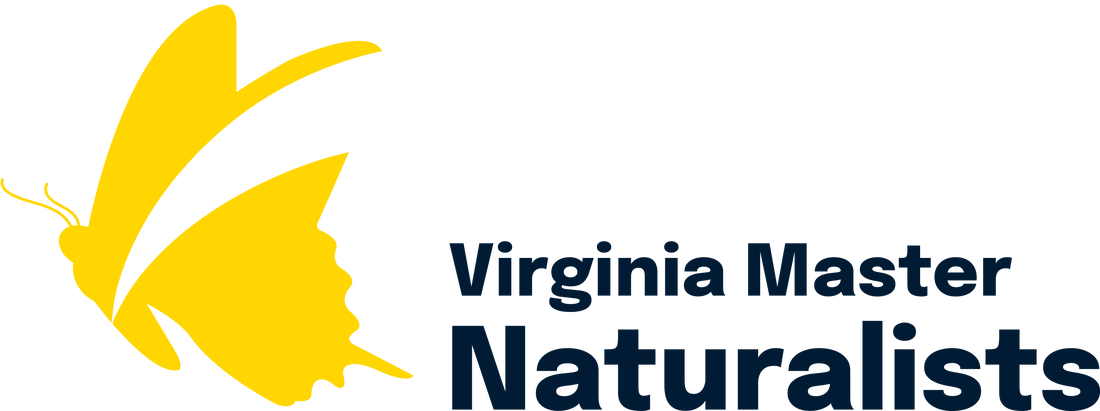 A sign indicated a no-mow area. Image by VDCR.
A sign indicated a no-mow area. Image by VDCR. By Nancy Heltman, Visitor Services Director, Virginia State Parks, Department of Conservation and Recreation
Virginia State Parks strives to keep much of its park land undeveloped, striving for a developed footprint of no more than 25%. Most parks are far less than that. We have always maintained woodlands and fields in their natural habitat. However, we have also historically made most of the developed areas in our parks look manicured; at the very least the areas along park roads and around facilities.
Realistically while many of our visitors enjoy the natural sections of the park, they primarily do that on trails and many more visitors do not venture much farther than those more manicured developed areas. So other than a pollinator or natural plant garden here or there, and a few wildlife viewing areas we created in the past, an average visitor might not get to view natural habitats close at hand.
We decided to make a change this year and a significant number of our parks began piloting “no mow zones.” The result: colorful wildflower fields, reduced soil erosion, habitat diversity to attract wildlife like small game and pollinators, and reduced staff time, equipment wear and tear, and gasoline/pollution involved in mowing operations.
Part of the program is to educate our visitors as to why we are making the change (as opposed to letting them assume the staff have just shirked their grass cutting work). Signs explaining the changes and the reasons behind the program have been posted along with smaller signs that indicate areas that are part of the no mow zones.
The signage also provides some “take home ideas” for our visitors so that they can broaden the habitats and improve environmental stewardship habits at home.
These “no mow areas” now provide increased wildlife viewing opportunities, the sounds of birds, photo ops and research opportunities.
Virginia State Parks strives to keep much of its park land undeveloped, striving for a developed footprint of no more than 25%. Most parks are far less than that. We have always maintained woodlands and fields in their natural habitat. However, we have also historically made most of the developed areas in our parks look manicured; at the very least the areas along park roads and around facilities.
Realistically while many of our visitors enjoy the natural sections of the park, they primarily do that on trails and many more visitors do not venture much farther than those more manicured developed areas. So other than a pollinator or natural plant garden here or there, and a few wildlife viewing areas we created in the past, an average visitor might not get to view natural habitats close at hand.
We decided to make a change this year and a significant number of our parks began piloting “no mow zones.” The result: colorful wildflower fields, reduced soil erosion, habitat diversity to attract wildlife like small game and pollinators, and reduced staff time, equipment wear and tear, and gasoline/pollution involved in mowing operations.
Part of the program is to educate our visitors as to why we are making the change (as opposed to letting them assume the staff have just shirked their grass cutting work). Signs explaining the changes and the reasons behind the program have been posted along with smaller signs that indicate areas that are part of the no mow zones.
The signage also provides some “take home ideas” for our visitors so that they can broaden the habitats and improve environmental stewardship habits at home.
These “no mow areas” now provide increased wildlife viewing opportunities, the sounds of birds, photo ops and research opportunities.




 RSS Feed
RSS Feed